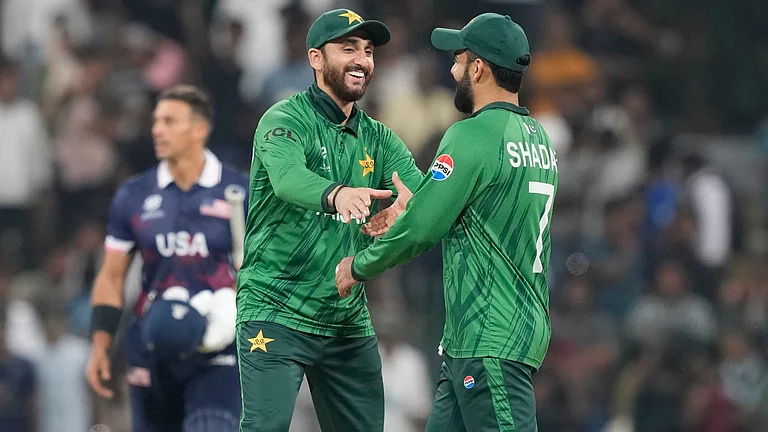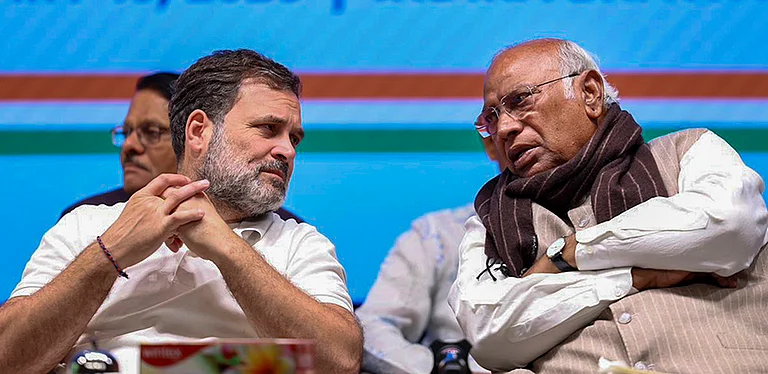As the Congress voiced displeasure over its president Rahul Gandhi being seated in the sixth row at the main Republic Day event in Delhi, senior party leader Salman Khurshid said it was "more an issue of good manners than protocols".
Gandhi attended the Republic Day Parade at Rajpath and took the designated sixth-row seat, along with Leader of Opposition in the Rajya Sabha Ghulam Nabi Azad.
"It's sad if those in power think somebody's stature is decided by where that person is seated," Khurshid said.
Speaking on the sidelines of the Jaipur Literature Festival, he said India values protocols, but beyond protocols "there is something called good manners".
"Rahul Gandhi is not just a Congress MP anymore. He is also the president of India's largest opposition party. And if the ruling party doesn't understand that position, it is unfortunate."
Government sources said that as per the protocol, the Leader of Opposition is accorded a seat in the seventh row.
Khurshid also said the entire matter reflects "how much respect the ruling party has for the democratic process".
The Congress leader also spoke about the ongoing protests over the release of Bollywood film "Padmaavat".
"The Supreme Court has done what is the obvious thing to do. This is not an isolated judgment for one single film, this should be taken as a general view for the freedom of expression. And that applies to everybody."
The apex court had allowed the release of the film in all states.
He noted that while everyone has a right to free expression and dissent, it should be exercised within the walls of "permissible free expression".
"Dissent is a part of freedom of expression," he said, "just as much as the person who wants to say something should be allowed to say that, there are people who have an issue with that person should also be allowed to voice it. But all of this should remain within the four walls of permissible limits of free expression," he said.
He said free expression that turns violent should not be permitted.
"Free expression when turns into violence or oppression is obviously not permissible. We are all committed to free expression and not free oppression," he said.
(PTI)


























